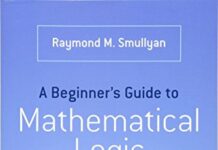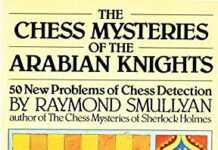
Ebook Info
- Published: 2003
- Number of pages: 164 pages
- Format: PDF
- File Size: 0.44 MB
- Authors: Raymond M. Smullyan
Description
Is there really a God, and if so, what is God actually like? Is there an afterlife, and if so, is there such a thing as eternal punishment for unrepentant sinners, as many orthodox Christians and Muslims believe? And is it really true that our unconscious minds are connected to a higher spiritual reality, and if so, could this higher spiritual reality be the very same thing that religionists call God”? In his latest book, Raymond M. Smullyan invites the reader to explore some beautiful and some horrible ideas related to religious and mystical thought. In Part One, Smullyan uses the writings on religion by fellow polymath Martin Gardner as the starting point for some inspired ideas about religion and belief.Part Two focuses on the doctrine of Hell and its justification, with Smullyan presenting powerful arguments on both sides of the controversy. “If God asked you to vote on the retention or abolition of Hell,” he asks, “how would you vote?” Smullyan has posed this question to many believers and received some surprising answers. In the last part of his treasurable triptych, Smullyan takes up the “beautiful and inspiring” ideas of Richard Bucke and Edward Carpenter on Cosmic Consciousness. Readers will delight in Smullyan’s observations on religion and in his clear-eyed presentation of many new and startling ideas about this most wonderful product of human consciousness.
User’s Reviews
Reviews from Amazon users which were colected at the time this book was published on the website:
⭐I actually bought this book in 2013, forgot that I had it, and then realized I had it when I tried to purchase it again after reading an article about Smullyan at Wikipedia. Oh, well…. Anyway, the book is in three sections. The first section is Smullyan’s thoughts on Martin Gardner’s book The Whys of a Philosophical Scrivener. This was the most interesting section of the book, to me. I am a Gardner fan from way back, and I’d never encountered that particular book by him (trust me, it’s on my reading list now!). Smullyan jumps around from topic to topic within Garder’s book, discussing the immortality of the soul, the existence of God, and Garder’s fideism, which Smullyan lauds. That is, Gardner thinks it is impossible to prove the existence of God, but he chose to believe in Him, anyway. I would philosophically disagree with both Gardner and Smullyan on this–I agree with Mortimer Adler that while God’s existence can’t be proved with 100% certainty, it can be demonstrated beyond reasonable doubt. Still, Gardner and Smullyan make good arguments for their perspective, and I can respect that.The second part of the book deals with universalism–the notion that all people, even the most evil, will ultimately be saved; or, alternately, that there is no eternal hell. This has been a topic of some interest to me, and I have written extensively about it at my blog. I am therefore pretty much in agreement with Smullyan, who argues in favor of universalism; but Smullyan doesn’t really raise in issues with which I’m not already familiar. This section of the book would be most helpful to someone who had never studied the concept of universalism before.The third section of the book deals with what Smullyan refers to as Cosmic Consciousness, basing his terminology largely on the writings of Richard Maurice Bucke. Cosmic Consciousness is more or less the intuitive realization of oneness with the cosmos and a concurrent elevation of one’s morality and consciousness. Smullyan doesn’t use the term, but it’s somewhat like what Hinduism would call jivamukti or what Zen would call satori or “enlightenment”. This part of the book is interesting; but I do not share the optimism of Bucke and Smullyan that the human race is evolving towards a more or less Utopian state in which everyone has Cosmic Consciousness.On the whole, the book was worthwhile and enjoyable. Smullyan has a breezy, easygoing style that will be welcome to those who are unaccustomed to theology and philosophy. I’ve encountered a lot of the ideas he deals with many times before, so there wasn’t much new in the book to me; but I still liked it, and I’d recommend it to all.
⭐Here is a book that manages, in relatively few pages and in a style that is consistently readable, to address provacatively and intelligently some of the central questions that men and women throughout time have pondered. Three basic areas are covered: (1) The existence of God, and more important, the “type” of God in whom one believes, (2) The question of whether God is unable or unwilling to grant eternal salvation to all and, (3) Whether we are evolving toward a higher level of consciousness — a state of being “better described than defined.” Smullyan, apparently, has led a colorful life, a significant fraction of which has been spent outside the halls of academia. Still,he is best known for his puzzles, particularly his wonderful puzzles concerning Knights (who always speak the truth) and Knaves (who never do). So, we are most fortunate that this magician/logician should turn his attention to the greatest puzzles of all: Does God exist, what are God’s attributes and can we, or at least some people, know God? Countless volumes have been written on these questions. I have sampled not even an insignificant fraction of such work, but I’d bet good money that you could travel a long way in those jungles before finding a book as lucid and as accessible as “Who Knows?” One doesn’t have to agree with Smullyan to go on the tour with him. Having read the library’s copy, I purchased my own copy from Amazon and plan to take the trip again shortly.
⭐Smullyan addresses important questions about religion in a charmingly non-dogmatic manner. At the same time, he makes clear his own deeply held belief, which I share, that no one deserves eternal punishment. I think he needs to say more, however, about his claim that morality is not necessary for someone who has attained a high stage of spiritual development. It makes sense that someone who is highly developed spiritually will not even be tempted to do the wrong thing, but clear thinking about morality could still be necessary in order to know what is the right thing to do in a particular situation.Smullyan’s explanation of why he believes in an afterlife is thought-provokingly simple. He says that he can form no idea whatsoever of his own non-existence. This makes me wonder what form my existence might have taken before I was born.Other intriguing ideas that Smullyan advances include: that it is more rational to believe in an evolving God than in a perfect God; that whether the miracles reported in the Bible actually took place is irrelevant to the question of whether Jesus is the incarnation of God; that it is more consistent with monotheism to suppose that no one is an incarnation of God; that the most plausible and promising religious, mystical, or metaphysical idea yet proposed is Richard Bucke’s idea that humans who experience cosmic consciousness are evolutionary forerunners.His writing style is enriched with humorous anecdotes. I heartily recommend this entertaining and important book.
⭐Smullyan’s books on logic are beautifully written, easy to follow but deep. This book has the same quirky but irresistible logic. For example, “Many people think there is no evidence for or against the existence of God. I disagree, I think there is strong evidence both for and against the existence of God.”Christians and other theists will take little comfort from the arguments in the book, but neither will atheists. In fact Smullyan’s views should challenge pretty much anyone who reads the book: I certainly disagreed with a lot of it. However, the arguments are so well presented it is a pleasure to disagree with. This book should help to clarify the ideas of anyone who reads it with care.
⭐Geeignet für “unsichere” Personen, die sich trotzdem für Spirituelles interessieren, das nicht nur in “alten” Kategorien dargelegt wird.Smullyan ist “streng” aber trotzdem freundlich argumentierend.Sehr stringente Argumente, trotzdem auch humorvoll.Gute, weitere Buchhinweise
⭐
Keywords
Free Download Who Knows?: A Study of Religious Consciousness in PDF format
Who Knows?: A Study of Religious Consciousness PDF Free Download
Download Who Knows?: A Study of Religious Consciousness 2003 PDF Free
Who Knows?: A Study of Religious Consciousness 2003 PDF Free Download
Download Who Knows?: A Study of Religious Consciousness PDF
Free Download Ebook Who Knows?: A Study of Religious Consciousness

